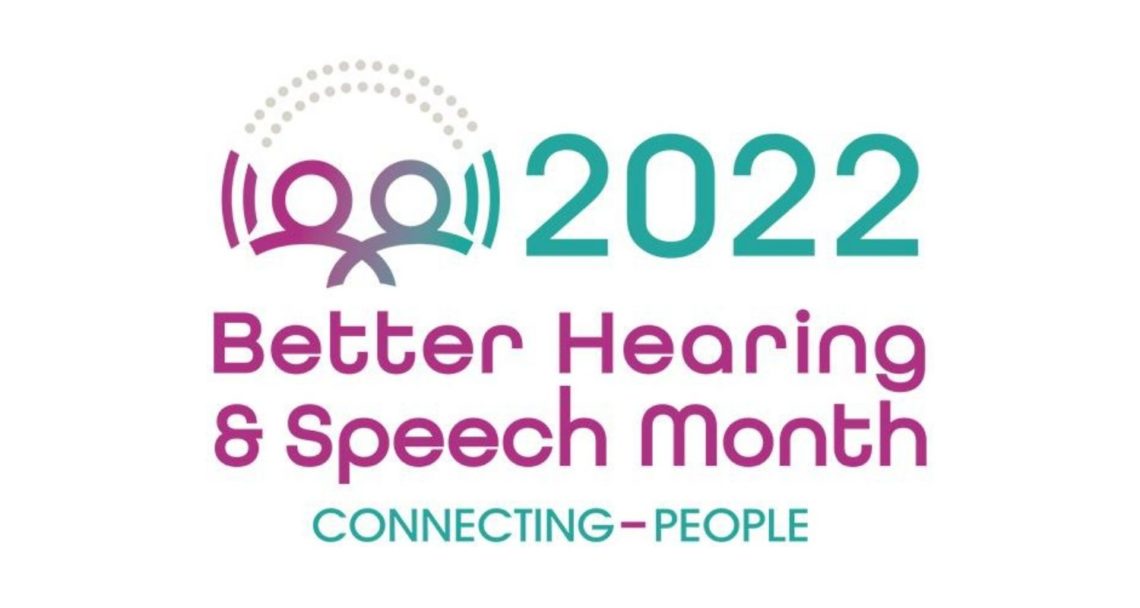Hearing loss is often underestimated in its severe effect on life. It’s more than just simple misunderstandings. It can quickly affect the relationships in our lives from family and friends that seemed they would never go anywhere to even romantic partnerships.
Hearing loss does not occur in a vacuum. If your hearing is affecting you, there is a good chance that it’s negatively affecting your loved ones as well.
This May is Better Hearing and Speech Month, an annual campaign led by ASHA (American Speech-language-Hearing Association to promote awareness and stress the importance of treatment of hearing loss and other communication disorders. The theme for 2022 is “Connecting People” and this couldn’t come at a better time than at the start of Spring after an isolating and ongoing pandemic. We are all excited to connect again however many of us as we attempt to reconnect may discover that a hearing loss is making it more difficult than suspected.
Untreated hearing loss can strain your relationships
The problem is that many times people with hearing loss don’t even realize they have a problem. This is because hearing loss often starts slow and is so subtle it’s barely noticeable as you may miss just high tones. However, just because you are not aware of a loss doesn’t mean it’s not affecting you. It’s often consonants such as “f”,”s”, and “h” which go first, leaving breaks in the compression within words. This forces you to strain and puts stress on your brain. As a result, even small interactions can feel uncharacteristically exhausting. It’s often more tempting to avoid social situations altogether when you can, due to the stress and exhaustion. Friends and family may start to feel distant over the years with no sense as to the root of what is going on.
Hearing Loss and Social Isolation
Because of the frustration which often accompanies hearing loss, it’s all too common for people to begin avoiding social situations. You may choose to skip your family reunions and parties just don’t seem fun. When you struggle with hearing loss, crowded gatherings and noisy settings become difficult to navigate. It’s hard to differentiate a speaker from a crowd. Over years, this kind of withdrawal can have serious implications for overall mental health. It’s common for social situations to cause anxiety and as people feel less a part of their loved one’s life depression takes over.
Tips for talking to your partner about hearing loss
If someone in your life is struggling with hearing loss you may notice it before they do. It’s most likely caused stress and resentment in your relationship. However, with love and care, you don’t have to let it continue to draw the two of you apart. While it may be tempting to be accusatory around their loss, this can further resentment and cause the affected individual to become stubborn around treating a loss. Use a firm, caring tone that doesn’t come across as judgmental or condescending.
- Explain to them how it’s affecting your relationship. Avoid using “you” statements. Centering how their hearing loss affects you will allow them to see their situation from another’s eyes.
- Explain health risks. Come prepared and know your material. Explain to them how untreated hearing loss can lead to depression, cognitive decline, dementia, and a higher risk of falls. Urge them to seek treatment before it starts to get to irreversible points.
- Make an appointment to have your hearing tested: Don’t ask them to do something you aren’t willing to do yourself. Hearing loss is a risk for anyone of any age, especially once you reach the age of 65. An annual hearing test is always a good idea. Even a slight undiagnosed hearing loss can contribute to cognitive decline. offer to go along with them for support.
Seeking Treatment
While hearing loss is most often irreversible with hearing aids many people can improve communication and rebuild relationships. This May use Better Hearing and Speech Month as a nudge to call us to schedule a hearing exam! We look forward to hearing from you.

